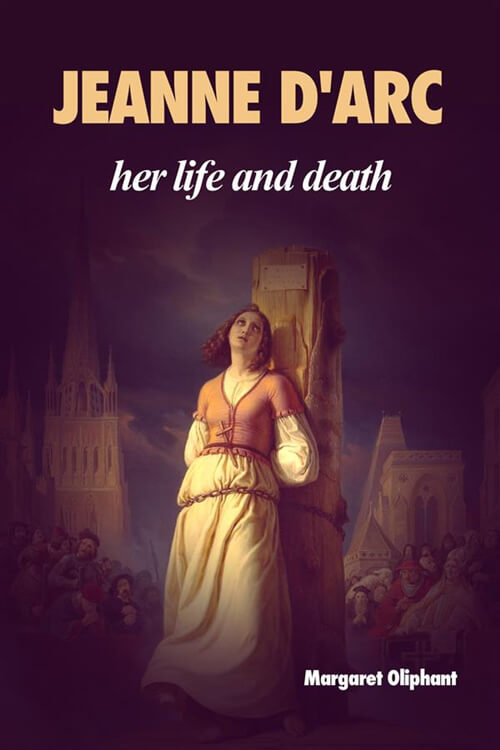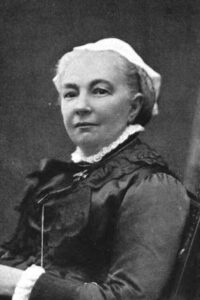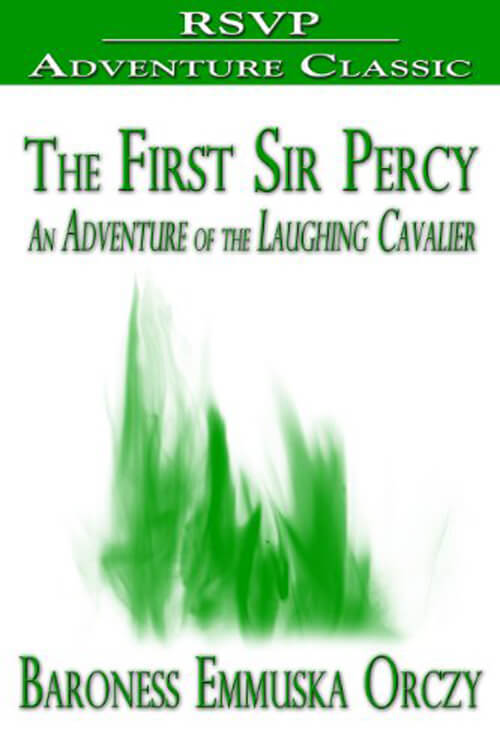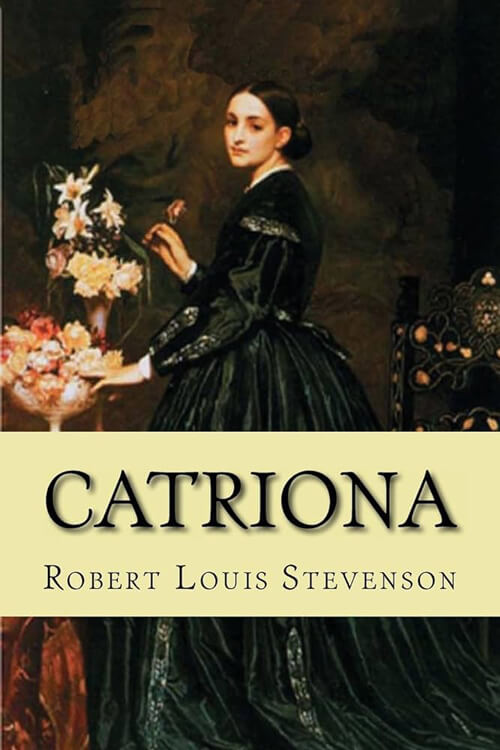
Jeanne d’Arc, Her Life and Death
It is no small effort for the mind, even of the most well-informed, how much more of those whose exact knowledge is not great (which is the case with most readers, and alas! with most writers also), to transport itself out of this nineteenth century which we know so thoroughly, and which has trained us in all our present habits and modes of thought, into the fifteenth, four hundred years back in time, and worlds apart in every custom and action of life. What is there indeed the same in the two ages? Nothing but the man and the woman, the living agents in spheres so different; nothing but love and grief, the affections and the sufferings by which humanity is ruled and of which it is capable. Everything else is changed: the customs of life, its methods, and even its motives, the ruling principles of its continuance. Peace and mutual consideration, the policy which even in its selfish developments is so far good that it enables men to live together, making existence possible,–scarcely existed in those days.
The highest ideal was that of war, war no doubt sometimes for good ends, to redress wrongs, to avenge injuries, to make crooked things straight–but yet always war, implying a state of affairs in which the last thing that men thought of was the golden rule, and the highest attainment to be looked for was the position of a protector, doer of justice, deliverer of the oppressed. Our aim now that no one should be oppressed, that every man should have justice as by the order of nature, was a thing unthought of. What individual help did feebly for the sufferer then, the laws do for us now, without fear or favor: which is a much greater thing to say than that the organization of modern life, the mechanical helps, the comforts, the easements of the modern world, had no existence in those days. We are often told that the poorest peasant in our own time has aids to existence that had not been dreamt of for princes in the Middle Ages. Thirty years ago the world was mostly of the opinion that the balance was entirely on our side and that in everything we were so much better off than our fathers, that comparison was impossible. Since then there have been many revolutions of opinion, and we think it is now the general conclusion of wise men, that one period has little to boast itself of against another, that one form of civilization replaces another without improving upon it, at least to the extent which appears on the surface. But yet the general prevalence of peace, interrupted only by occasional wars, even when we recognize a certain large and terrible utility in war itself, must always make a difference incalculable between the condition of the nations now, and then.
It is difficult, indeed, to imagine any concatenation of affairs which could reduce a country now to the condition in which France was at the beginning of the fifteenth century. A strong and splendid kingdom, to which in early ages one great man had given the force and supremacy of a united nation, had fallen into a disintegration which seems almost incredible when regarded in the light of that warm flame of nationality which now illumines, almost above all others, the French nation.
Read or download Book
Margaret Oliphant
Margaret Oliphant Wilson Oliphant (born Margaret Oliphant Wilson; 4 April 1828 – 20 June 1897) was a Scottish novelist and historical writer, who usually wrote as Mrs. Oliphant. Her fictional works cover “domestic realism, the historical novel and tales of the supernatural”.
Life
Margaret was born at Wallyford, near Musselburgh, East Lothian, as the only daughter and youngest surviving child of Margaret Oliphant (c. 1789 – 17 September 1854) and Francis W. Wilson (c. 1788–1858), a clerk. She spent her childhood at Lasswade, Glasgow, and Liverpool. Oliphant Gardens, a street in Wallyford, is named after her. As a girl, she continually experimented with writing. She had her first novel published, Passages in the Life of Mrs. Margaret Maitland, in 1849. This dealt with the relatively successful Scottish Free Church movement, with which her parents sympathized. Next came Caleb Field in 1851, the year she met the publisher William Blackwood in Edinburgh and was invited to contribute to Blackwood’s Magazine – a tie that continued for her lifetime and covered over 100 articles, including a critique of the character of Arthur Dimmesdale in Nathaniel Hawthorne’s The Scarlet Letter.
In May 1852, Margaret married her cousin, Frank Wilson Oliphant, at Birkenhead and settled at Harrington Square, now in Camden, London. Her husband was an artist working mainly in stained glass. Three of their six children died in infancy. Her husband developed tuberculosis and for his health, they moved in January 1859 to Florence and then to Rome, where he died. This left Oliphant in need of an income. She returned to England and took up literature to support her three surviving children.
She had become a popular writer by then and worked notably hard to sustain her position. Unfortunately, her home life was full of sorrow and disappointment. In January 1864 her one remaining daughter Maggie died in Rome and was buried in her father’s grave. Her brother, who had emigrated to Canada, was shortly afterward involved in financial ruin. Oliphant offered a home to him and his children, adding their support to already heavy responsibilities.
In 1866 she settled at Windsor to be near her sons, who were attending Eton. That year, her second cousin, Annie Louisa Walker, came to live with her as a companion housekeeper. Windsor was her home for the rest of her life. Over more than 30 years she pursued a varied literary career, but personal troubles continued. Her ambitions for her sons remained unfulfilled. Cyril Francis, the elder, died in 1890, leaving a Life of Alfred de Musset, incorporated in his mother’s Foreign Classics for English Readers. The younger, Francis (whom she called “Cecco”), collaborated with her in the Victorian Age of English Literature and won a position at the British Museum, but was rejected by Sir Andrew Clark, a famous physician. He died in 1894. With the last of her children lost to her, she had little further interest in life. Her health steadily declined and she died at Wimbledon on 20 June 1897. She was buried in Eton beside her sons. She left a personal estate worth a gross of £4,932 and a net value of £804.
In the 1880s Oliphant acted as literary mentor of the Irish novelist Emily Lawless. During that time, Oliphant wrote several works of supernatural fiction, including a long ghost story A Beleaguered City (1880), and several short tales, including “The Open Door” and “Old Lady Mary”. Oliphant also wrote historical fiction. Magdalen Hepburn (1854) is set during the Scottish Reformation and features Mary, Queen of Scots, and John Knox as characters.






